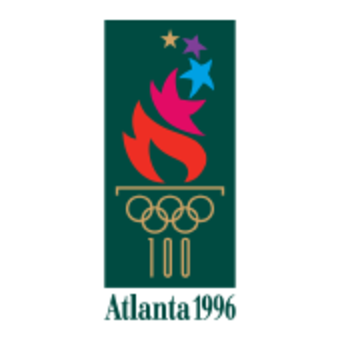
Atlanta 1996
XXVI edition of the Summer Olympics
19 July - 04 August 1996

Medal table
-
13
-
10
-
12
STATISTICS
- Nations 197
- Athletes 10328 (6817 men; 3511 women)
- Italian Athletes 340 (236 men; 104 women)
I declare the Games of Atlanta celebrating the twenty-sixth Olympics of the modern era open. With these words, President Bill Clinton received a long standing ovation from the 83,000 spectators present at the opening ceremony. For the fourth time in less than a century the United States celebrated hosting the Games. The torch to light the Olympic Flame was entrusted, with a clever coup de theatre, to the sick and trembling hands of one of the most popular exponents of American sports, Muhammad Ali, winner, under the name of Cassius Clay, of the Olympic heavyweight title in Rome1960. However, the centenary Games presented contradictory aspects. The city of Atlanta, one of the most important centres of the southern United States, despite the impressive technology deployed - which often, however, did not work properly - showed the world a distracted and chaotic side that made the heads of the IOC seriously reconsider the choice of future Olympic hosts. The oppressive atmosphere created by security measures set up by the authorities would then become unbearable after the crazy Olympic Park bombing. It was an atmosphere that didn't always favour athletes' performances, however there were still many fine ones. The Atlanta Games were the first Olympics with limited participation, where athletes had to actually win, in difficult pre-Olympic trials, the right to compete at the Games. This latest change, which together with complete opening up to professionals, made this edition of the Games a completely different event from that imagined by De Coubertin, but in perfect line with the times, and with what people and TV desired. The hero of the Games was the Texan, Michael Johnson, who accomplished an historic feat, winning at the same Olympics the 400 metre gold and three days after the 200 metre title. In the last race, the twenty-nine-year old from Texas silenced the world by bringing the world record down to an amazing 19.32. Speaking of speed (enhanced by an Italian built track) the world record for 100 metres was rewritten by the Canadian, Donovan Bailey, who won in 9.84 ahead of the Namibian, Frankie Fredericks and the star athlete from Trinidad, Ato Boldon for the fastest hundred in the history of athletics. Carl Lewis also claimed a personal record: at the age of 35 he managed to win a fourth consecutive gold medal in the long jump. A record 197 countries participated at the Atlanta Games. Also present was a delegation from Palestine, while the South African team marched behind the new banner of the racial reunification. And it was the turn of an unknown black South African, Josia Thugware, to win the most classic of Olympic events, the marathon. The Olympics were not without heroic tales and small personal dramas. Such as that of the diminutive US gymnast Kerri Strug who, fracturing an ankle at the end of the vault, still managed to conclude the exercise helping the US team claim their first gold in the gymnastics team event. Even for Jury Chechi, who had dominated the rings for years, it was his first Olympic gold, after pulling out of Barcelona in 92 due to an accident just a few days before the competition. Italy, protagonist from start to finish, began with Roberto Di Donna claiming the first gold medal offered on the 20th of July in the 10 metre air pistol and finished with the final event scheduled on the 4th of August, with the team ending the Games with a silver in volleyball. A total of 13 gold medals, 10 silvers and 12 bronzes, without doubt the most prestigious Olympic achievement of all time if compared to the number of events and the number of participating athletes. In the medal table, the United States topped the 100 mark with 44 golds 32 silvers and 25 bronzes. Germany followed in terms of total medals won with 65 medals of which 20 were gold, returning to top level for the first time since the crisis following reunification. Behind the two sporting giants was Russia (61 medals, 26 golds), China (50 medals) Australia (41 medals), France (37 medals), Italy (35 medals).


